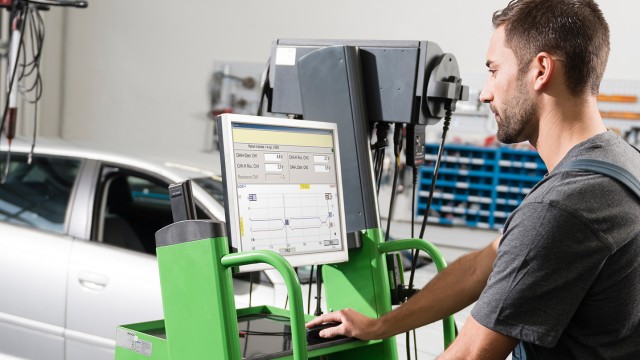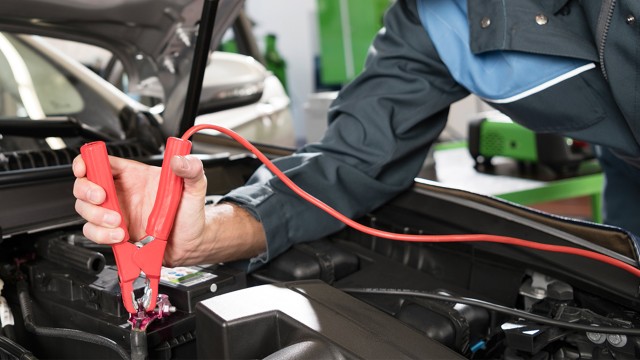Most up-to-date vehicles contain a number of advanced car safety features. You may have seen them referred to with acronyms such as ABS, TCS and ESP®. Although those terms seem a little confusing, they are essentially technologies that try to help you recover from skids or prevent skidding in the first place.
The whole process of intervening in dangerous situations on the road is, of course, computer controlled. Sensors at the wheel and within the power train work provide a processing unit with data about the current situation, upon which a program will determine the best course of action almost instantaneously before sending commands to brakes, engine and other components.
So, as you can imagine, diagnosing and fixing problems with your vehicle’s safety systems requires advanced equipment that can interrogate the sensors and processing units involved. Fortunately, Bosch has been at the forefront of developing these workshop tools, so Bosch Car Service facilities are extremely well equipped and trained for this kind of work.



